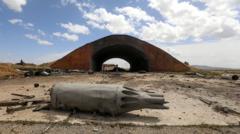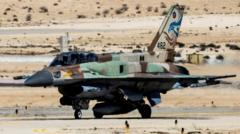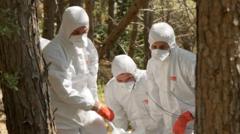Syria's Easter festivities serve as a litmus test for the new government, unveiling lingering concerns among religious minorities about their future in a changed political landscape.
Syria's Easter Revelations: A Peaceful Test for New Governance

Syria's Easter Revelations: A Peaceful Test for New Governance
In a historic Easter celebration, Syria's new government faces scrutiny over inclusivity as Christians joyfully observe.
Amid the backdrop of ongoing political transformation, Syria marked Easter with joy and hope as Christians celebrated one of their holiest days at the iconic Al Zeitoun Cathedral in Damascus. The occasion was marked by a poignant sermon from the bishop, who drew parallels between Jesus's Resurrection and the resurrection of Syria following the recent upheaval that saw President Bashar al-Assad ousted after decades of rule.
This Easter, however, was more than just a religious observance; it was a pivotal moment for the nation. Just months after the rebel victory, residents reflected on what a post-Assad Syria could entail. While many Sunni Muslims appeared supportive of the new leadership, which is characterized by a more conservative interpretation of Islam, the apprehension among religious minorities lingers.
Worshippers gathered at various churches across Damascus, most notably the Orthodox Armenian Church and the Mariamite Cathedral, keenly aware of the transitional nature of their country. For Syria's Christian communities, the new government, led by President Ahmed al-Shara—a figure with a controversial past as a former member of Al Qaeda—represents both a glimmer of hope for a new era and a source of anxiety regarding their rights and freedoms.
The question on everyone's lips was whether the new governance would uphold the spirit of tolerance that had allowed Christians and other minorities to observe Easter peacefully under the former regime. With President al-Shara promising inclusivity and moderation, the Easter celebrations stood as a test of his leadership's commitment. Observers noted the contrasts between the peace and protection of these festivities and the volatile realities many continue to face.
As the festivities wind down, the path forward for all communities in Syria remains uncertain, filled with both hope and trepidation about the new government's intentions and the future of religious pluralism in a liberally redefined Syria.




















